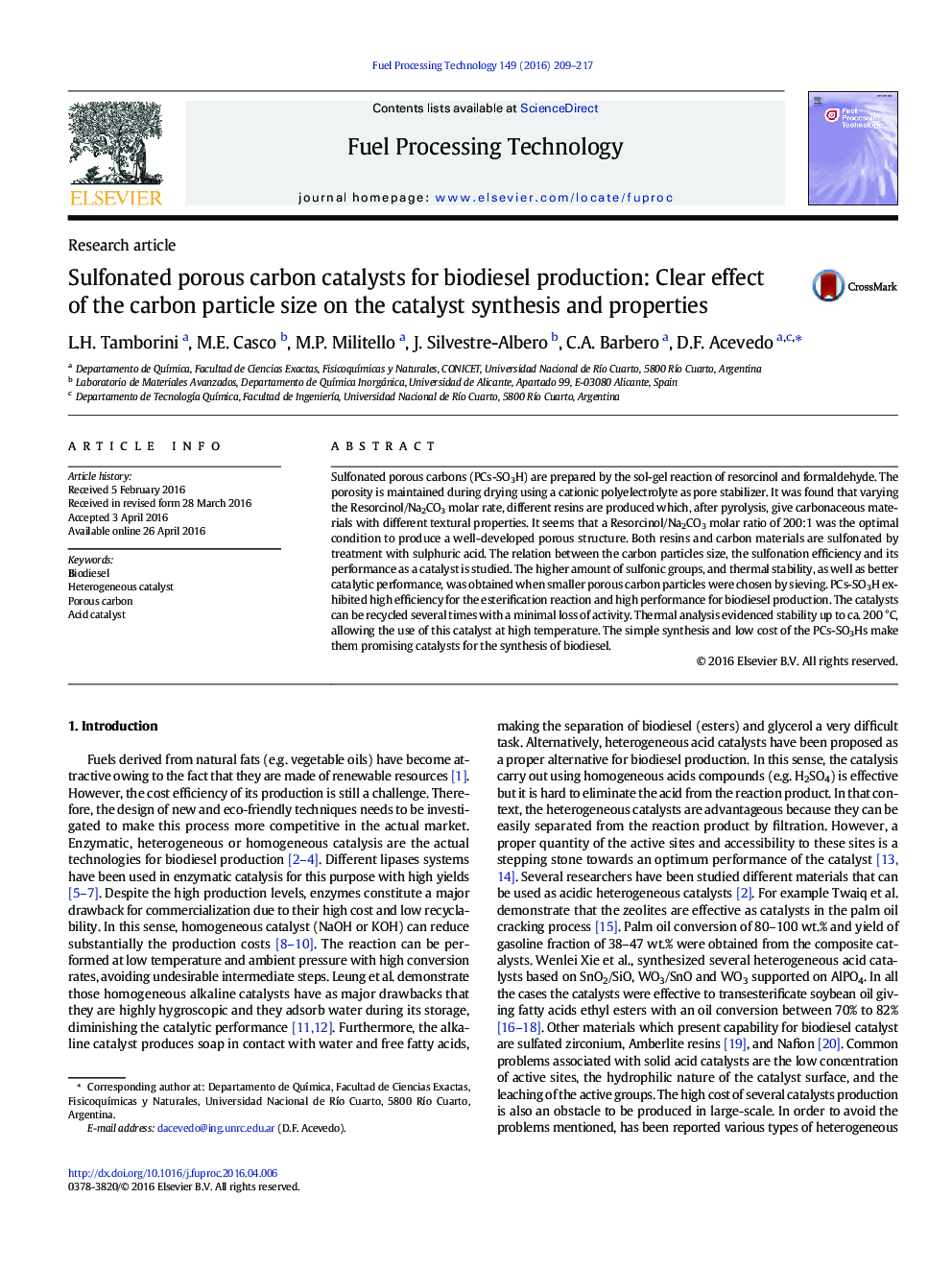| Article ID | Journal | Published Year | Pages | File Type |
|---|---|---|---|---|
| 209167 | Fuel Processing Technology | 2016 | 9 Pages |
•An easy synthesis and low cost of catalysts for the biodiesel synthesis is depicted.•The catalyst shows high performance for biodiesel production.•The catalyst can be recycled several times without significant loss of activity.•The Higher amount of sulfonic groups is obtained for smaller particles.•Due to the easy synthesis and low cost are promising materials for biodiesel synthesis.
Sulfonated porous carbons (PCs-SO3H) are prepared by the sol-gel reaction of resorcinol and formaldehyde. The porosity is maintained during drying using a cationic polyelectrolyte as pore stabilizer. It was found that varying the Resorcinol/Na2CO3 molar rate, different resins are produced which, after pyrolysis, give carbonaceous materials with different textural properties. It seems that a Resorcinol/Na2CO3 molar ratio of 200:1 was the optimal condition to produce a well-developed porous structure. Both resins and carbon materials are sulfonated by treatment with sulphuric acid. The relation between the carbon particles size, the sulfonation efficiency and its performance as a catalyst is studied. The higher amount of sulfonic groups, and thermal stability, as well as better catalytic performance, was obtained when smaller porous carbon particles were chosen by sieving. PCs-SO3H exhibited high efficiency for the esterification reaction and high performance for biodiesel production. The catalysts can be recycled several times with a minimal loss of activity. Thermal analysis evidenced stability up to ca. 200 °C, allowing the use of this catalyst at high temperature. The simple synthesis and low cost of the PCs-SO3Hs make them promising catalysts for the synthesis of biodiesel.
Graphical abstractFigure optionsDownload full-size imageDownload as PowerPoint slide
